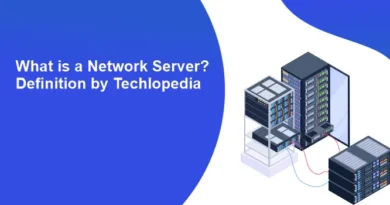7 Sneaky Ways Hackers can Get Your Facebook Password
Everyone likes to stay connected with friends and family through social applications. And when it comes to social applications, what is better than Facebook? But today, we will let you know that the safety of Facebook is very important to keep you safe from hackers. Here are the 7 gateways through which hackers get your Facebook password.
Suspicious Emails
The very common method that hackers use to access your email is through suspicious emails. We name it suspicious, but these emails don’t look suspicious; rather, they are so close to real emails.
Hackers use email templates of Facebook, with its logo and everything so real that you cannot distinguish if it’s from Facebook or it’s a trap.
If you ever get an email mentioning it’s from Facebook and ask them to insert your Facebook, never believe it. First, go to your Facebook email and check if there is a notification about the email. If there is no email notification on your Facebook, you should fill in details; otherwise, beware of scammers!
Phishing
When talking about emails, the most common trap is phishing. In this, you are asked to sign in to the website by your Facebook credentials; never get into that scam!
This is the most common scam that hackers use to take your credentials by just popping some image, or short video of your interest may be. Try to avoid such traps; always open trusted websites and links. And remember to check the security icon with the URL of the website!
Fake Facebook Buttons
You might have seen buttons on the website that says like or share but never try to hit them; otherwise, you may get into trouble. These buttons are also fake, and they have hidden controls to other websites that might be cautious. If you click such a button, it will ask you to log in to Facebook.
To avoid such a mistake, log in from the new tab, and if the previous tab still asks you to input credentials again, then there is a red alert, man! Never fill the credentials and immediately close those tabs.
Password Spraying
Yet another but common password-getting trick is through password spraying. Password spraying is when the hackers try to guess the most common and related to your passwords.
So it is always suggested to make your password hard. You should use alphanumeric and symbols. Never use the common letters or numbers as your password.
Plain Password Grabbing
If you have many accounts on any social =l or even for different socials, it is recommended to use different passwords. In many cases, people lose their precious data due to having the same password.
So if the hacker gets to one password of any social, he/she can definitely get into all of your socials. In this way, you might be in great danger.
Try using a password manager for your apps; it will generate a strong password and also manage your different passwords.
Keylogging
This is the trick hackers use by keeping track of your keystrokes. This is done with the help of software that saves your keys while you enter your Facebook passwords, and not only it stops till Facebook; instead, it takes your bank details and everything that you input on your device.
This software is often installed with other software. They come in a package. So while downloading any software, make sure to download them from a trusted source; that’s the only escape.
Unsecured Networks
While using trusted websites and softwares, and taking all the precautions, you can still be in danger if you are using public Wi-Fi. This public Wi-Fi is never safe; they can see and share your information at no cost even.
Try to use a secured internet connection, or in some cases, you can also use VPN; it also helps encrypt your data for better security.
So these were the most common traps hackers use to get your credentials. Beware of such scams and always use trusted apps, trusted networks, and never forget to use a strong password. Your security is your right!



